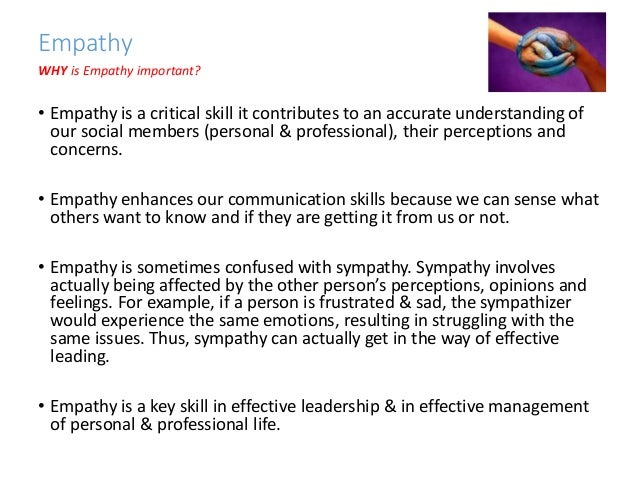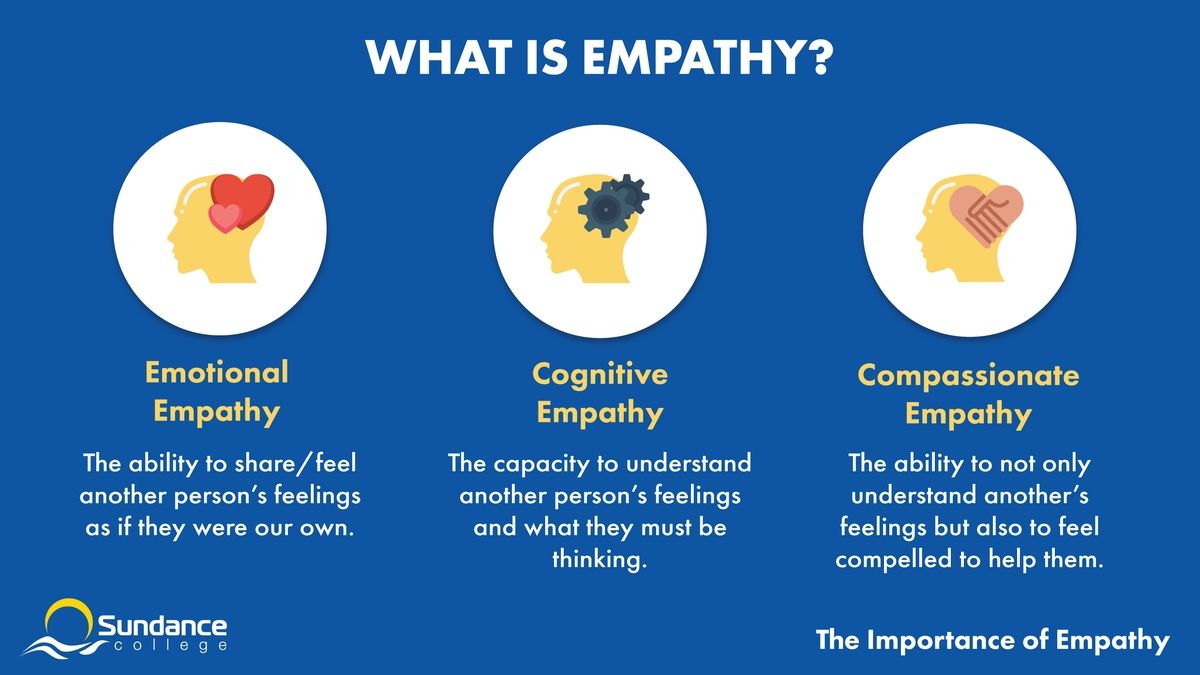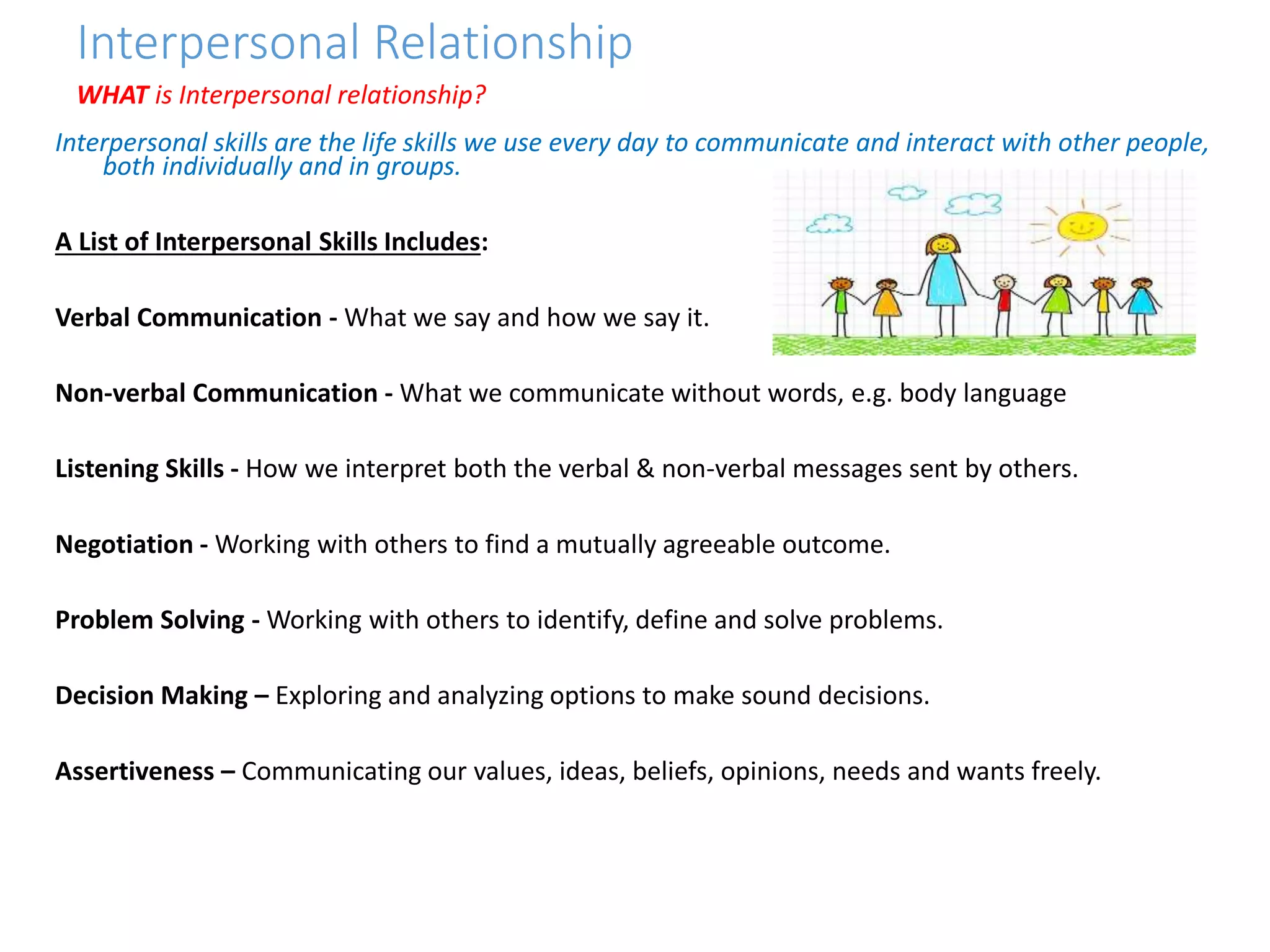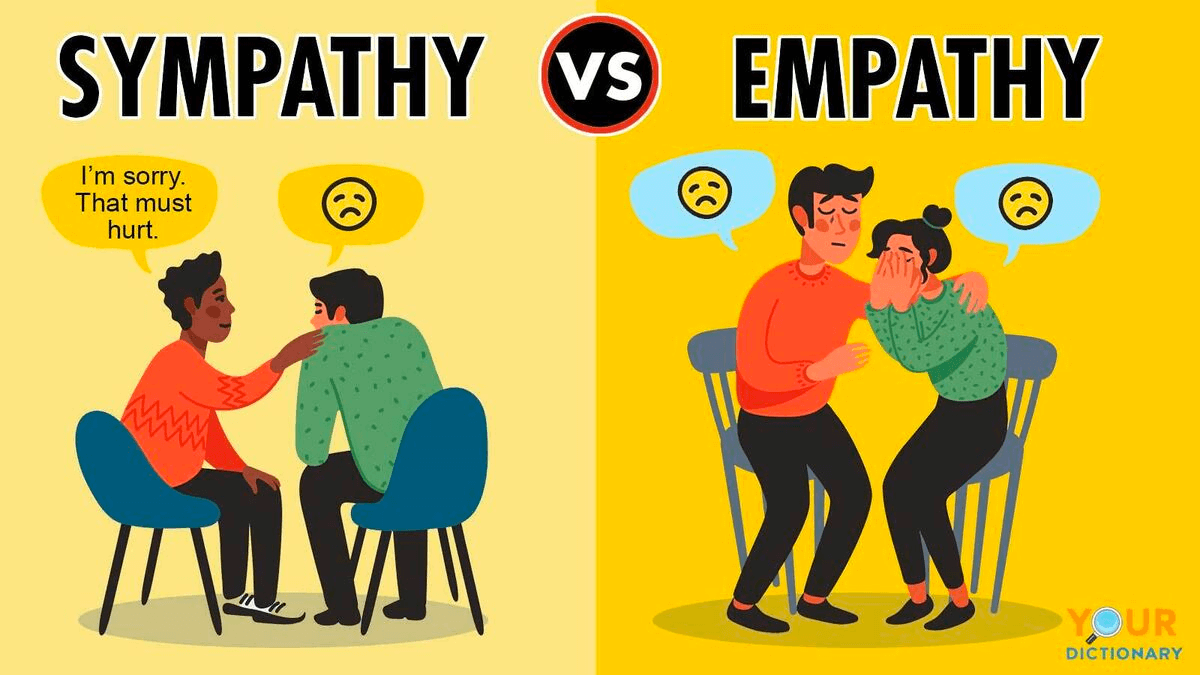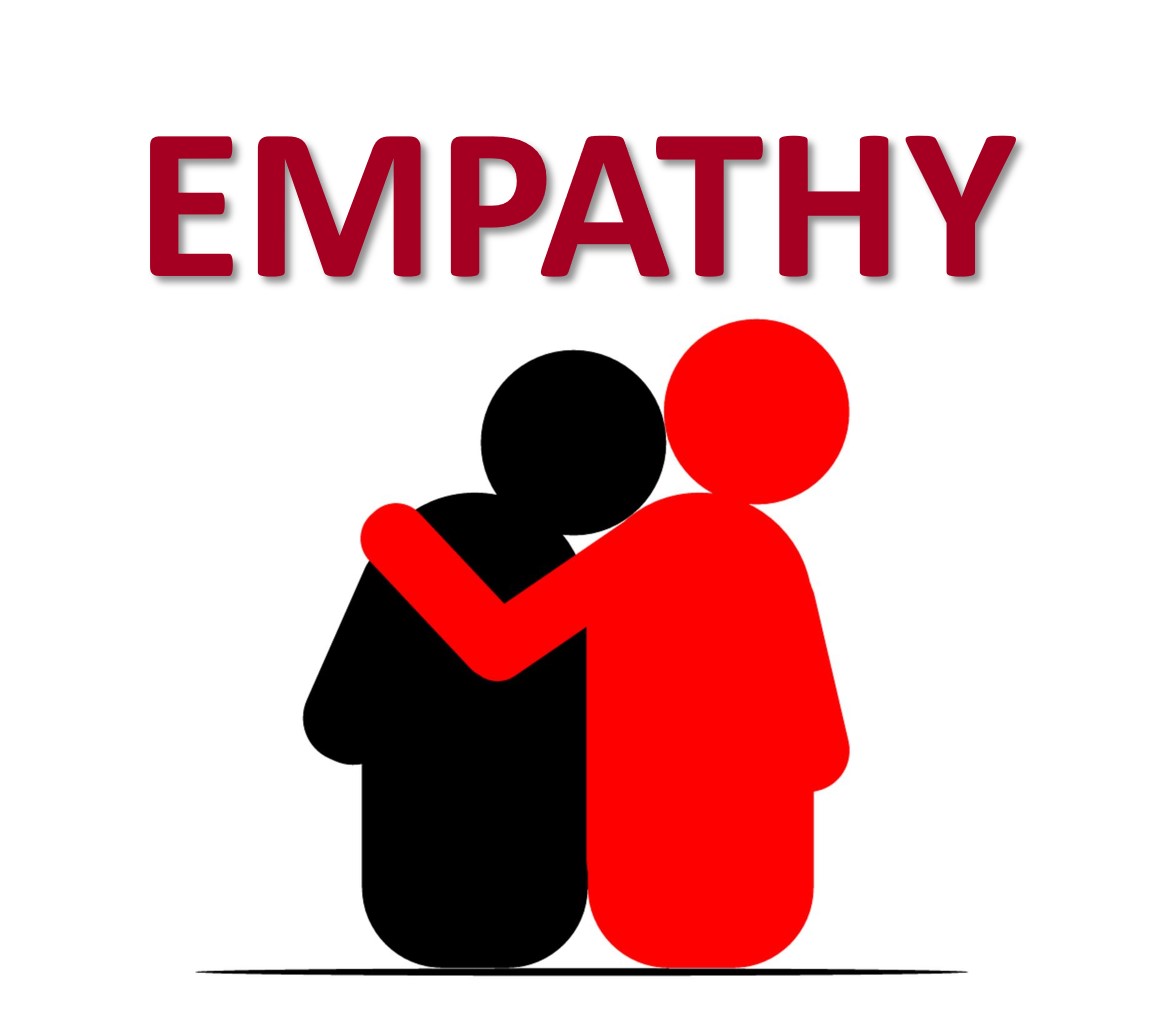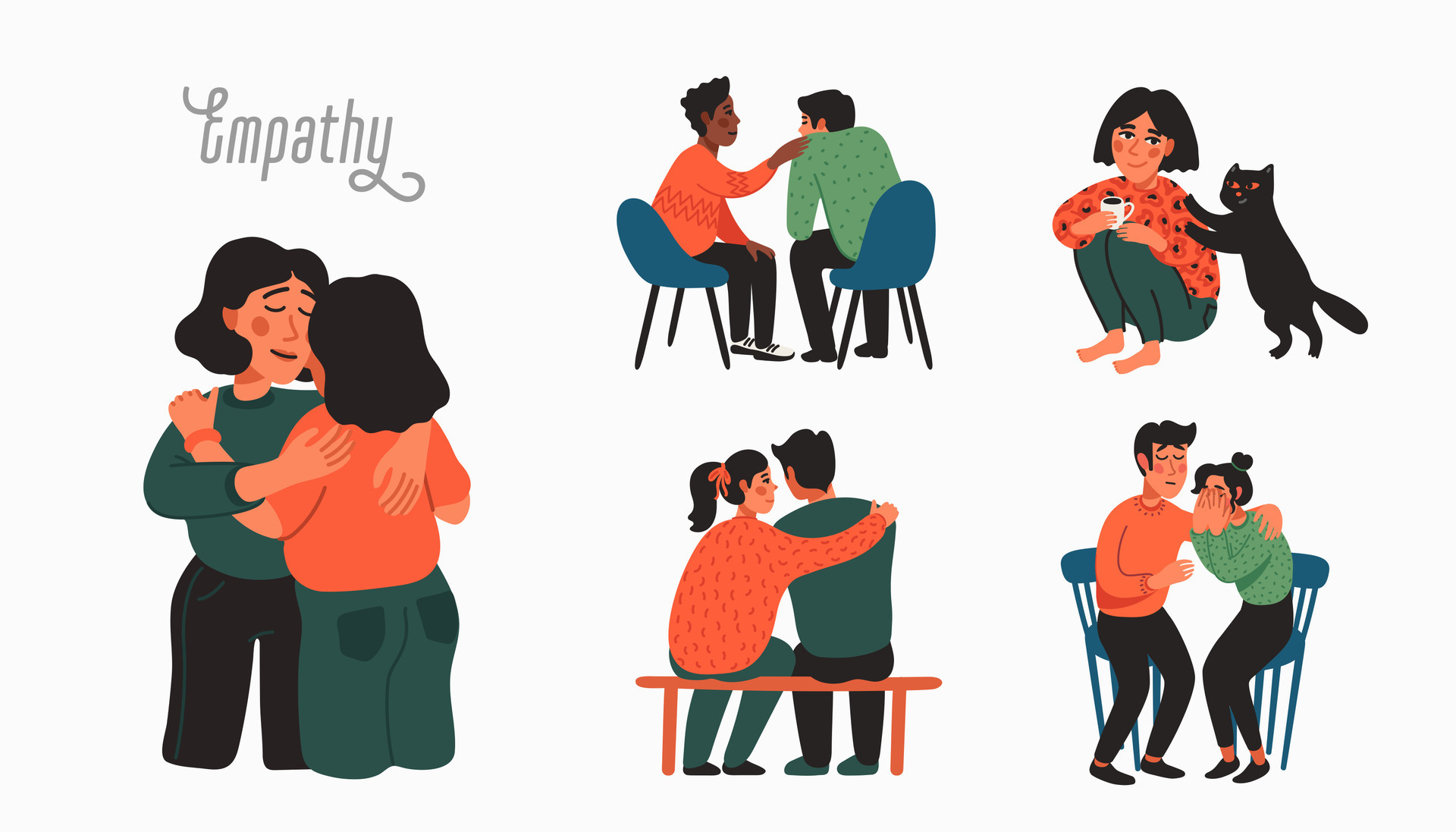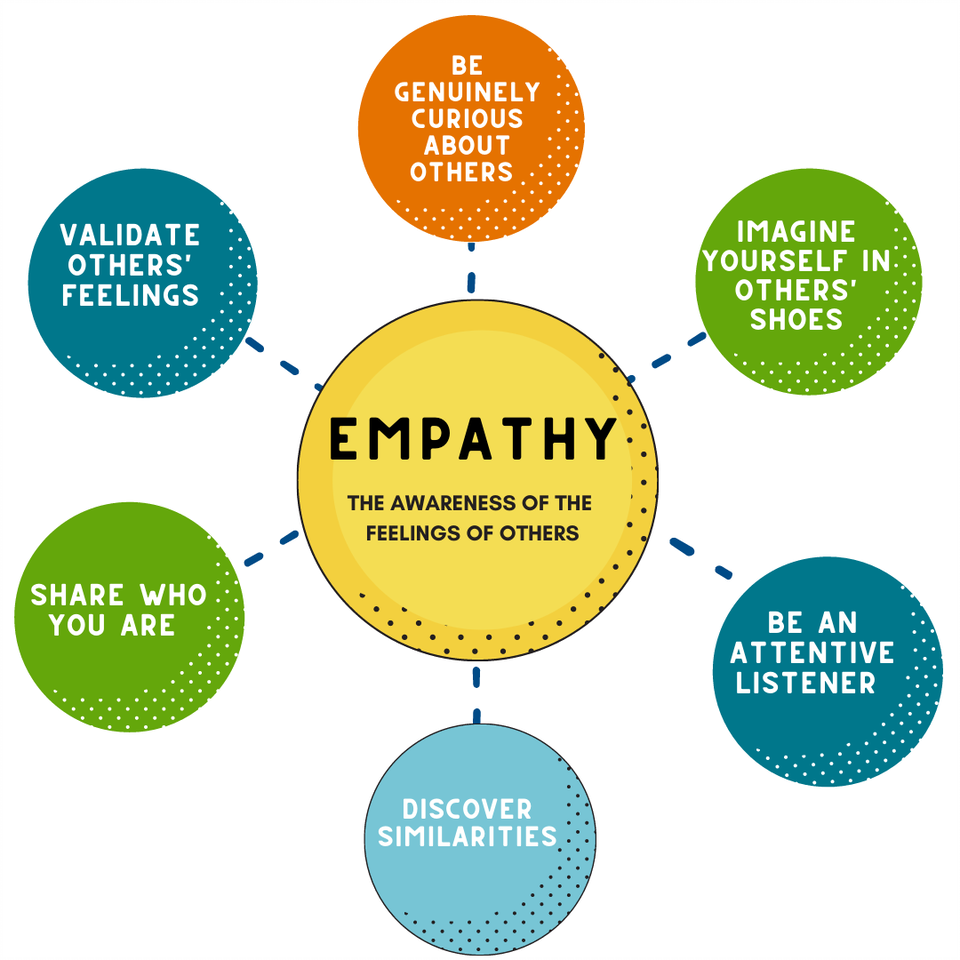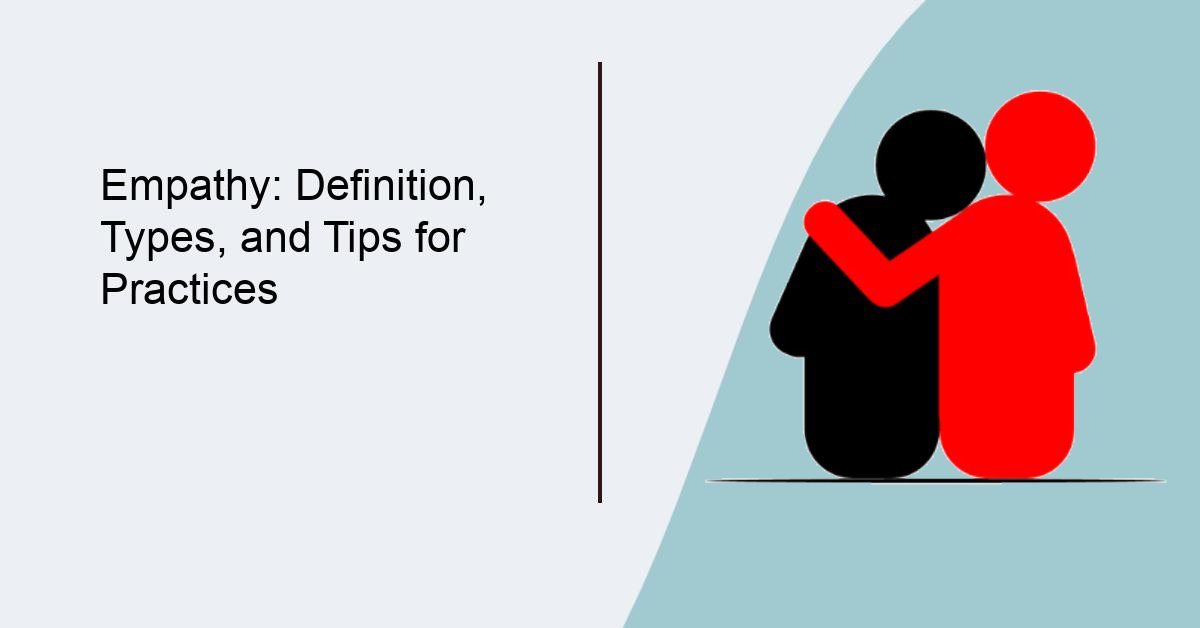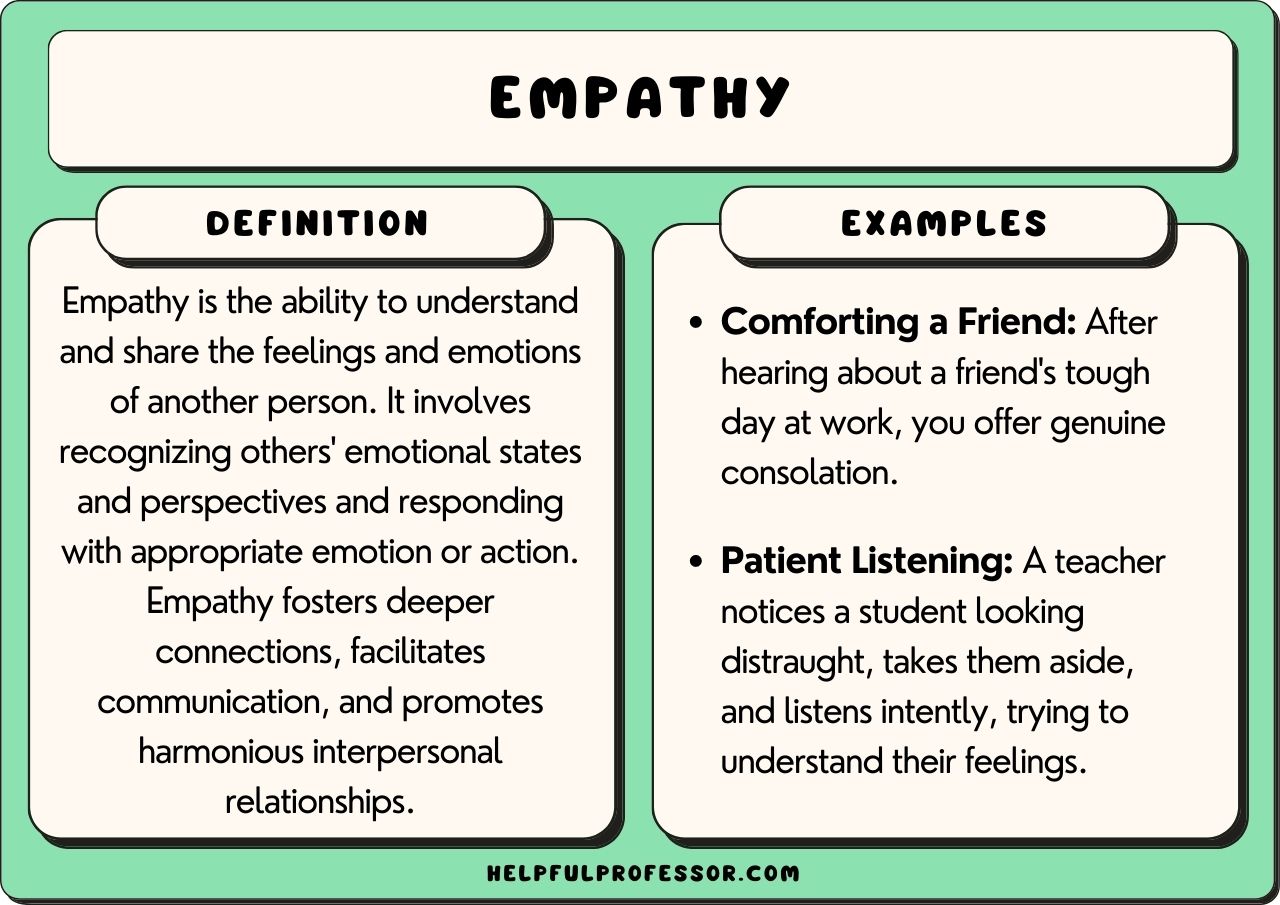Empathy And Interpersonal Relationships
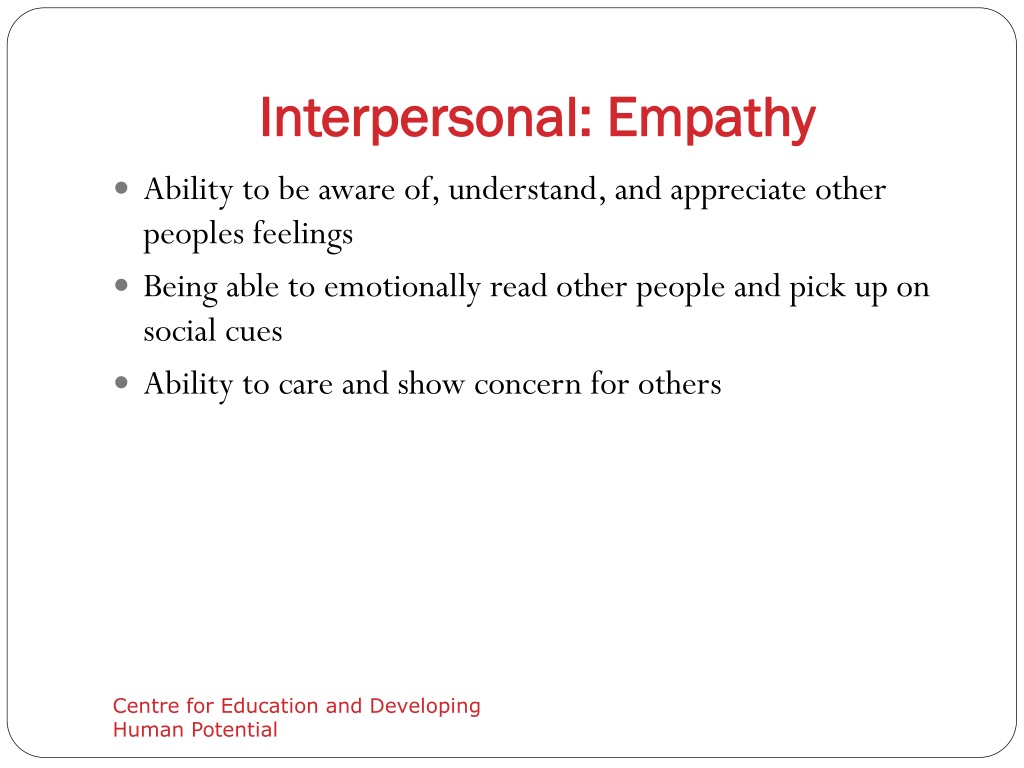
Imagine you're walking down a bustling city street. The sounds of traffic, snippets of conversations, and the hurried footsteps of passersby create a symphony of urban life. Suddenly, you notice someone sitting alone on a bench, their shoulders slumped, their gaze lost in the distance. A wave of understanding washes over you, a silent acknowledgment of their potential sadness or weariness. That, in its simplest form, is the power of empathy.
At its core, empathy is the ability to understand and share the feelings of another. It's more than just sympathy or feeling sorry for someone. It’s about stepping into their shoes, seeing the world from their perspective, and genuinely connecting with their emotional state. This article explores the crucial role empathy plays in fostering and maintaining strong interpersonal relationships, examining its benefits, challenges, and ways to cultivate this essential skill.
The Building Blocks of Connection
Empathy is the cornerstone of meaningful human interaction. It allows us to navigate complex social situations, build trust, and create a sense of belonging. Without empathy, our relationships can become transactional, superficial, and ultimately, unfulfilling.
According to Dr. Helen Riess, author of "The Empathy Effect," empathy allows us to "truly see" the other person. It helps us understand their needs, fears, and aspirations. This understanding, in turn, allows us to respond in a way that is supportive, validating, and ultimately, strengthens the bond between us.
Strong interpersonal relationships, fueled by empathy, are essential for our well-being. Research consistently demonstrates a positive correlation between strong social connections and improved mental and physical health. People with supportive relationships tend to experience less stress, lower rates of depression, and even a longer lifespan.
Beyond Sympathy: The Nuances of Empathy
It's important to distinguish empathy from sympathy. Sympathy involves feeling *for* someone, while empathy involves feeling *with* them. Sympathy can create distance, reinforcing the idea that "I'm okay, and you're not." Empathy, on the other hand, fosters connection by acknowledging shared humanity.
However, empathy is not simply about agreeing with someone's actions or beliefs. It's about understanding why they feel the way they do. It requires active listening, non-judgmental observation, and a genuine desire to connect with the other person's experience.
Cultivating Empathy: A Skill to be Learned
While some individuals may be naturally more empathetic than others, empathy is a skill that can be learned and cultivated. According to a study published in the Journal of Personality and Social Psychology, empathy can be enhanced through training and practice.
One effective way to boost your empathy is to practice active listening. This involves paying close attention to what the other person is saying, both verbally and non-verbally, and reflecting back to them your understanding of their feelings. Avoiding interrupting or offering unsolicited advice is key.
Another powerful tool is perspective-taking. Try to imagine yourself in the other person's situation. Consider their background, experiences, and beliefs. Ask yourself, "How would I feel if I were in their shoes?"
Reading fiction can also enhance empathy. By immersing ourselves in the stories of others, we gain insights into different perspectives and emotional landscapes. This can help us develop a deeper understanding of the human condition.
The Challenges of Empathy
Empathy, while beneficial, also presents its own set of challenges. Excessive empathy can lead to emotional exhaustion, burnout, and even vicarious trauma. It’s crucial to establish healthy boundaries to protect your own well-being.
Compassion fatigue, a state of emotional and physical exhaustion caused by prolonged exposure to suffering, is a common concern for those working in helping professions. It's essential to practice self-care and seek support when needed to maintain emotional equilibrium.
Furthermore, empathy can be selective. We tend to feel more empathy for those who are similar to us or who belong to our in-group. Overcoming this bias requires conscious effort and a willingness to extend our empathy to those who are different from us.
A World Transformed by Empathy
In a world often characterized by division and conflict, empathy offers a path towards greater understanding, compassion, and connection. By cultivating empathy in our personal relationships, workplaces, and communities, we can create a more just and equitable society.
Imagine a world where leaders prioritize empathy in their decision-making, where businesses foster empathetic work environments, and where individuals treat each other with kindness and respect. This vision, while ambitious, is achievable through the power of empathy.
Ultimately, empathy is a gift we can give to ourselves and to others. It's a bridge that connects us, a light that guides us, and a force that has the potential to transform our world for the better. Let us embrace the power of empathy and build a more compassionate future, one connection at a time.

